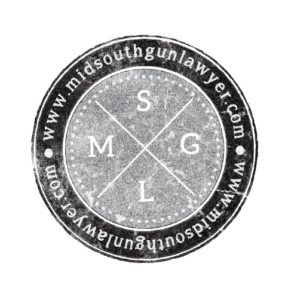In 2016, the Mississippi Legislature passed the “Mississippi Church Protection Act.” Well publicized at the time, the Act garnered significantly more attention after the mass shooting at First Baptist Church in Sutherland Springs, Texas, on November 5, 2017. In that shooting twenty-six (26) people were killed with another twenty (20) wounded. Like almost all mass shootings, the attack ended when a neighbor, Stephen Willeford, confronted the gunman with an AR-15 of his own.
In the aftermath of the shooting more and more churches have begun asking what an appropriate safety plan entails. While I believe this is ultimately a matter of conscience and that reasonable minds can differ, in my judgment churches should follow the example of Nehemiah 4:9: “But we prayed to our God and posted a guard day and night to meet this threat.” To that end, I offer the following information.
Mississippi state law requirements for a firearm-equipped church security team
- All armed individuals should be members of the church
- Each teach member must be listed in the church’s minutes or other written records as a team member
- Each team member must hold an enhanced concealed carry firearm license
Recommendations not required by state law
These are my own recommendations based on my experience planning, implementing, and running a church security team, and based on my consultation with other experts doing the same. I believe each recommendation is sound but opinions may differ on the particulars.
- No one can be a security team member unless they meet the criteria for elders or deacons set out in Scripture. See Titus 1:5-9, 1 Tim. 3:1-7, and 1 Peter 5:1-4.
- Scripture does not require us to be perfect, thank God for that, but I believe all security team members should meet the same basic criteria as leaders. Of course, some requirements, such as the gift of being “able to teach,” do not apply or do not apply in equal measure. But most of the other criteria, such as “not given to drunkenness” and “not violent but gentle” are equally applicable.
- Every armed member should also carry a less-than-lethal defensive tool. Less-than-lethal response will, statiscally speaking, be appropriate much than deadly force.
- Oleoresin capsaicin spray (OC, a/k/a pepper spray) is a very good option. OC spray is safe, effective, inexpensive, widely available, and does not require significant training. There are also no laws restricting the carry of OC spray.
- Expandable batons may also have a place if the member is appropriately trained. Unlike OC spray, batons are capable of inflicting permanent, debilitating injuries and even death if used improperly.
- Another less-than-lethal option is a taser, but like a baton, extensive training is needed.
- Each team member should carry a handheld flashlight and radio, if possible. These two items also have many beneficial uses unrelated to security, such as during power outages and severe weather, or when trying to locate a lost child or coordinate EMS response to a medical emergency.
- The security team leader(s) should verify the skill of each member with a firearm and organize refresher training and practices as frequently as feasible.
- Team members should strive to work in pairs rather than alone.
- The team should prepare a written plan of action
- A written plan, sometimes called a “SOP” (standard operating procedure) can be something of a two-edged sword.
- On the one hand, ‘proper planning and practice prevents piss poor performance.’ Measured, deliberate, repeatable, and pre-planned actions are much more likely to have a good result than hoping whoever is there rises to the occasion with a bit of divine providence (the world would call it “luck.”)
- On the other hand, failing to follow or breaching a written plan can invite liability where there may have been none without the standards set forth in writing.
- On the whole, especially in light of the immunities provided by the Act, I believe a SOP is a wise choice.
- A written plan, sometimes called a “SOP” (standard operating procedure) can be something of a two-edged sword.
- I believe that all members of the church should be known to and under the shepherding of the church leadership for at least a year. Exceptions to this rule of thumb may be many, but the point is that new members and those that seem too eager to be on a security team should be watched closely until the leadership is comfortable with the member’s character and judgment.
- The security team should be quick to disassociate a member when needed. Be wary of any disassociated member. Ex-team members may harbor resentment toward the church and at the same time have intimate knowledge of the team’s tactics. This is a potentially deadly combination.

